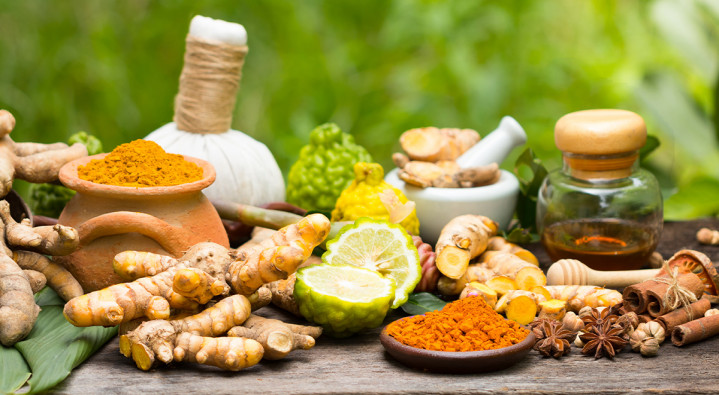Well Health Organic Ayurveda is a way to improve your health using ancient Indian medicine. It uses plants, herbs, and practices that focus on balance and wellness. This method helps you use nature’s healing power to find balance in your life.
Key Takeaways
- Ayurveda is a 3,000-year-old system of medicine that focuses on maintaining balance in the body and mind.
- Well Health Organic Ayurveda utilizes natural remedies, herbal supplements, and holistic practices to promote overall wellness.
- Ayurvedic treatments are individualized and may include dietary changes, herbal medicines, massage therapy, yoga, and meditation.
- Ayurvedic medicine is regulated differently than conventional medicine, so it’s important to consult with healthcare providers before use.
- Embracing the principles of Ayurveda can help individuals achieve a balanced, harmonious lifestyle.
Understanding Ayurveda: The Science of Life
Ayurveda is known as the “science of life.” It’s a holistic medicine from India, over 5,000 years old. It says that being healthy means your mind, body, and spirit are balanced. Ayurvedic healing looks at how everything in life is connected, from your body to your feelings and spirit.
Origins and Principles of Ayurvedic Healing
Ayurveda comes from the Vedic texts, some of the oldest human knowledge. It’s based on five basic elements: space, air, fire, water, and earth. These elements control our body’s functions, both physical and mental.
The Three Doshas: Vata, Pitta, and Kapha
Ayurveda focuses on three main forces or “doshas” – Vata, Pitta, and Kapha. These forces shape our nature. If one gets out of balance, it can cause health problems. Knowing about these doshas helps us stay healthy.
- Vata is about movement, dryness, and being irregular. Too much Vata can lead to anxiety, sleep problems, and an unpredictable appetite.
- Pitta is related to heat, breaking down food, and digestion. Too much Pitta can cause skin issues, heartburn, and feeling easily upset.
- Kapha is about being solid, keeping things moist, and being stable. Too much Kapha can make you feel slow, gain weight, and get congested.
Knowing about each dosha helps Ayurvedic experts create treatments that work for you. This way, they can help you find balance and stay healthy.
“Ayurveda is a sophisticated system of natural healing with the potential to transform the future of global healthcare.” – Dr. Deepak Chopra, Ayurvedic Physician and Author
Well Health Organic Ayurveda: A Holistic Approach
Well Health Organic Ayurveda offers a full, holistic way to wellness, using Ayurveda’s deep traditions. This ancient Indian medicine aims to bring balance and harmony to each person. It helps them live a life of natural healing and sustainable wellness.
This approach believes in fixing the root causes of imbalance for true health and energy. It combines plant-based remedies, herbal supplements, and mind-body practices. This helps nourish the body, calm the mind, and build deep well-being.
Ayurveda sees everything in life as connected. It says our physical, mental, and spiritual health are all linked. Well Health Organic Ayurveda uses this idea to help people take charge of their health and self-care. It encourages a lifestyle that matches nature’s cycles.
With more people choosing plant-based wellness and natural healing, Well Health Organic Ayurveda shines as a guiding light. It offers a proven way to improve health and energy. This holistic system encourages people to start a journey of self-discovery. It shows the body’s wisdom and the benefits of nature.
The Power of Herbs: Ayurvedic Plant-Based Remedies
Ayurvedic medicine is an ancient Indian system that uses powerful plant remedies for health. Ayurvedic herbs like turmeric and ashwagandha are famous for their health benefits worldwide.
Turmeric: The Golden Spice of Ayurveda
Turmeric, a golden spice, is key in Indian cooking and Ayurveda for fighting inflammation. It helps with joint pain, skin issues, and digestive problems.
Studies now confirm turmeric’s benefits, showing it can ease depression and anxiety. It’s an adaptogen, helping the body handle stress and stay well.
Ashwagandha: An Adaptogenic Herb for Stress Relief
Ashwagandha is another important ayurvedic herb. It helps the body deal with stress on all levels. It lowers stress hormones and brings calm.
Ashwagandha also boosts brain function, helps athletes, and supports wellness. It’s a top choice for those seeking natural health solutions.
“Ayurvedic medicine places a strong emphasis on the use of potent, plant-based remedies to address a wide range of health concerns.”
Ayurvedic herbs and plant-based remedies offer a holistic way to improve health. They help people take charge of their health and wellbeing. Ayurveda uses nature to balance the body, build resilience, and help it heal and flourish.
Ayurvedic Nutrition: Fueling the Body and Mind
Ayurvedic nutrition is all about feeding the body and mind with a balanced diet. It matches the body’s needs with whole, natural foods for better health. This method looks at each person’s unique balance and helps choose foods that help healing.
Ayurveda talks about three main energies, or doshas, that affect our health: Vata, Pitta, and Kapha. The diet aims to balance these energies by picking foods with certain gunas (qualities) and rasas (tastes).
| Dosha | Balancing Foods |
|---|---|
| Vata | Warm, hydrating, high in healthy fats, and grounding foods |
| Pitta | Cold, astringent, substantial, and gentle foods |
| Kapha | Warm, mild, dry, and roughage foods |
Mindful eating is key in Ayurvedic nutrition. It looks at the time, season, and your body type. Eating foods with all six tastes helps balance your digestion and body tissues.
If you want to improve your ayurvedic nutrition, try more plant-based nutrition. Or, aim for holistic wellness and mind-body balance. Ayurvedic dietetics can change how you feed your body and soul.
Mindfulness and Meditation: Balancing Mind, Body, and Spirit
Ayurveda sees a deep link between the mind, body, and spirit. It uses mindfulness and meditation to bring balance and harmony. A key practice is
Pranayama: The Art of Yogic Breathing
. This practice calms the mind, controls the nervous system, and boosts wellbeing. By using these techniques, people can become more aware of themselves and heal in the moment.
Pranayama is an ancient yogic breathing practice. It’s a key part of Ayurvedic healing. This practice involves different techniques to manage the flow of prana, or life force, in the body. Through pranayama, people can control their breathing. This affects their physical, mental, and emotional health greatly.
- Pranayama can reduce stress and anxiety by calming the mind and nervous system.
- Regular pranayama practice can improve breathing, increase oxygen intake, and support lung health.
- Some pranayama techniques, like Anuloma Viloma (Alternate Nostril Breathing), balance the doshas – vata, pitta, and kapha – for mind-body balance.
- Pranayama also helps increase mindfulness and awareness of the present moment, leading to peace and harmony.
By combining mindfulness, meditation, and pranayama, people start a journey of self-discovery and healing. These ancient Ayurvedic practices help lead to a balanced, harmonious, and healthy life.
Ayurvedic Lifestyle: Cultivating Balance and Harmony
The ayurvedic way of living focuses on balance and harmony. It’s all about adopting an ayurvedic lifestyle. This means following daily routines called dinacharya. These routines help match our body’s rhythms with nature’s cycles.
By doing things like waking up early, taking care of ourselves, and sleeping well, we can find equilibrium. This supports our overall health and well-being.
Dinacharya: The Importance of Daily Routines
Ayurvedic dinacharya, or daily routines, help our body’s clock match nature’s rhythms. These include:
- Waking up during the Brahma muhurta, the best time about 1.5 hours before sunrise
- Doing gentle stretches, yoga, or exercise to boost flexibility, strength, and energy
- Eating the main meal at noon when digestion is strongest
- Following a regular sleep schedule for 7-8 hours of good sleep each night
- Adding self-care like oil pulling, self-massage, and mindfulness
By sticking to these daily routines, we can live by the holistic living ideas of Ayurveda. This brings us a deep sense of balance and harmony in life.
“Ayurveda emphasizes the significance of a disciplined and balanced lifestyle to maintain optimal health.”
Sustainable Living: Embracing Ayurveda’s Eco-Friendly Principles
Ayurveda is an ancient Indian science of life that goes beyond just wellness for the individual. It teaches us to live in harmony with nature. By following Ayurveda, we can live sustainably, helping both our health and the planet.
Ayurveda believes all life is connected. It suggests using natural materials, growing organic food, and using renewable energy. Living in tune with nature helps us lower our impact on the planet and keeps it healthy.
Living Ayurvedically means choosing less and being mindful of what we buy. We should pick products that are good for the earth and made ethically. This helps the planet and follows Ayurveda’s idea of living in balance with our surroundings.
| Ayurvedic Eco-Friendly Practices | Benefits |
|---|---|
| Organic Farming | Protects the environment and provides chemical-free herbs and produce |
| Wildcrafting | Ethically harvesting herbs from their natural habitats to preserve biodiversity |
| Low-Impact Packaging | Using eco-friendly materials like glass, metal, or recyclable plastics to reduce waste |
| Energy-Efficient Production | Reducing the carbon footprint of herbal product manufacturing |
| Local Sourcing | Supporting local growers and suppliers to minimize environmental impact |
Ayurveda also supports using herbal remedies from sustainable sources. This protects nature and helps us avoid synthetic medicines. These natural remedies are good for us and the earth.
By living Ayurvedically, we can be kind to the planet and improve our health. It teaches us to be mindful of our actions and support a healthy environment. This way, we all can live in a balanced and thriving world.
“Ayurveda sees the human being as inherently connected to nature. By aligning our lives with the rhythms of the natural world, we can achieve true balance and wellness.”
Ayurvedic Wellness Retreats: Immersive Healing Experiences
In recent years, Ayurveda, an ancient Indian practice, has become more popular. More people are looking for ayurvedic wellness retreats for healing and rejuvenation. These retreats offer a full approach to well-being. They mix traditional Ayurvedic therapies, natural remedies, and mindfulness to help balance the mind and body.
India is where Ayurveda started and has some of the best ayurvedic wellness retreats. People from all over the world come here for a change. They find peace in places like Goa’s beaches and the Himalayas. These retreats are a place to leave daily life behind and find yourself.
At the core of these retreats are treatments made just for you. Guests can try detox rituals, herbal remedies, massages, and yoga. These therapies aim to fix imbalances for lasting health benefits.
But it’s not just about the treatments. These retreats also let guests dive into local culture. They learn about traditions and the deep roots of Ayurveda. This approach helps not just the body, but also the mind and spirit, leaving guests feeling balanced and peaceful.
Looking for stress relief, chronic condition management, or a transformative vacation? Ayurvedic wellness retreats offer a place of natural remedies and healing. They help people find themselves and improve their wellness.
| Top Ayurvedic Wellness Retreats in India | Unique Features |
|---|---|
| Ananda in the Himalayas | Personalized Ayurvedic treatments, luxury accommodations, wellness cuisine |
| Soul Vacation Resort & Ayurvedic Wellness Centre, Goa | Authentic Ayurvedic therapies, Iyengar Yoga, affordable luxury |
| Shreyas Retreat, Bangalore | Yoga, meditation, Ayurvedic therapies, eco-friendly practices |
| Vana, Dehradun | Integrative wellness approach, holistic healing, sustainable living |
| The Farm, Auroville | Organic farming, Ayurvedic treatments, spiritual immersion |
“Ayurveda is not just a system of medicine, but a way of life that promotes balance and harmony within the individual.”
Ayurveda is getting more popular worldwide, making ayurvedic wellness retreats a top choice for holistic healing. By diving into Ayurveda’s ancient wisdom, guests can start a journey to better health and more energy.
Integrating Ayurveda into Modern Life
Many people today are looking to add Ayurveda to their lives. This ancient wisdom can be easily mixed into our busy lives. By using simple Ayurvedic rituals and herbal remedies, we can improve our health and wellbeing. This approach helps us find balance and connect with nature.
The First International Congress on Ayurveda in 2009 brought together experts from different fields. They talked about how Ayurveda and modern science can work together. This showed the potential for a new way of looking at health.
Ayurvedic remedies use natural things like fruits and spices. They are a gentle way to stay healthy without the side effects of some medicines. These remedies have been shown to help with many health issues, like skin problems and arthritis.
Adding Ayurveda to our lives can be simple. We can start with daily routines like Dinacharya and Pranayama. Or, we can try wellness retreats that focus on healing the mind, body, and spirit.
Retreats like those from Veda5 in Rishikesh, Goa, and Kerala offer a deep healing experience. They aim to balance our inner and outer selves. By embracing Ayurveda, we can lead healthier, more balanced lives.
As we focus more on holistic wellness, Ayurveda is becoming a key part of our lives. By combining ancient wisdom with modern science, we can find a complete way to stay healthy. This approach promises a better life for everyone.
“The Congress aimed to establish a bridge between Ayurveda and Western scientific and biomedical thinking.”
| Ayurvedic Remedies | Allopathic Drugs |
|---|---|
| Derived from natural ingredients like fruits, spices, vegetables, and herbs | Chemical-based and can cause side effects such as hair loss, weakness, and allergies |
| Highly successful in managing a wide range of health conditions | May cure ailments swiftly but have more side effects and are less effective in the long term |
| Cleanse the body completely | Partially cleanse the body |
| Environmentally friendly | Pollute the environment |
| Cost-effective | More expensive |
Unlocking the Power of Ayurvedic Wellness Retreats
Ayurvedic wellness retreats, like those from Veda5, offer a deep dive into Ayurvedic living. They focus on balancing the mind, body, and spirit. Guests can try many natural therapies, from massages to detox programs, with expert guidance.
These retreats also have Yoga and Meditation for all levels. They help improve the mind and body. By focusing on self-care, these retreats help us apply Ayurvedic wisdom to our everyday lives. This leads to a more balanced and peaceful life.
Conclusion: Embracing the Ancient Wisdom for a Balanced Life
The ancient wisdom of Ayurveda is a powerful guide for today’s quest for balance and harmony. It has been around for over 5,000 years. This system of natural healing helps us tap into nature’s healing power and find balance in our minds, bodies, and spirits.
By following Ayurvedic wisdom, we can lead a more balanced life. We do this by using remedies made just for us, eating foods that nourish us, and practicing deep mind-body activities. This approach focuses on knowing our unique make-up (doshas) and preventing health issues before they start. It teaches us how to keep our bodies and minds in top shape.
The wellness world is changing, and Ayurvedic practices are becoming more popular. This shows a big move towards natural healing and understanding how everything in us is connected. Places like Harivihar in Kerala, India, offer a chance to experience Ayurveda’s ancient wisdom. They help us on a path of self-discovery and holistic well-being.
FAQ
Q: What is Well Health Organic Ayurveda?
A: Well Health Organic Ayurveda combines ancient Ayurveda wisdom with modern wellness. It uses plant-based remedies and mind-body practices for balance and health.
Q: What is Ayurveda and what are its core principles?
A: Ayurveda means “science of life” and is an ancient Indian medicine system. It believes in balance between mind, body, and spirit for health. The three main forces, Vata, Pitta, and Kapha, affect our health and wellbeing.
Q: How does Well Health Organic Ayurveda approach holistic wellness?
A: This approach uses Ayurveda’s traditions for wellness. It focuses on balance with plant remedies, supplements, and mind practices. The goal is to heal naturally and sustainably.
Q: What are some of the renowned Ayurvedic herbs and their benefits?
A: Turmeric and ashwagandha are famous Ayurvedic herbs. Turmeric fights inflammation and ashwagandha helps with stress and wellbeing.
Q: How does Ayurvedic nutrition differ from conventional diets?
A: Ayurvedic nutrition focuses on a plant-based diet tailored to each person’s needs. It guides on choosing foods that help healing.
Q: What are some of the key Ayurvedic mind-body practices?
A: Ayurveda uses mindfulness and meditation to balance the mind and body. Pranayama, or yogic breathing, is a key practice for calmness and wellbeing.
Q: How does the Ayurvedic lifestyle promote balance and harmony?
A: Ayurveda promotes a lifestyle that supports balance. Daily routines, or dinacharya, align with nature’s cycles. This helps maintain equilibrium and wellbeing.
Q: How does Ayurveda promote sustainable living?
A: Ayurveda encourages living in harmony with nature. It teaches sustainable practices for personal and environmental health.
Q: What are the benefits of attending an Ayurvedic wellness retreat?
A: Wellness retreats offer a deep dive into Ayurveda’s healing traditions. They combine therapies like herbal remedies and meditation for balance and rejuvenation.
Q: How can individuals integrate Ayurvedic principles into their modern lifestyles?
A: Integrating Ayurveda into daily life is possible with simple rituals and herbal remedies. Mindfulness practices also help in enhancing wellbeing.














